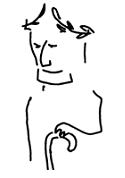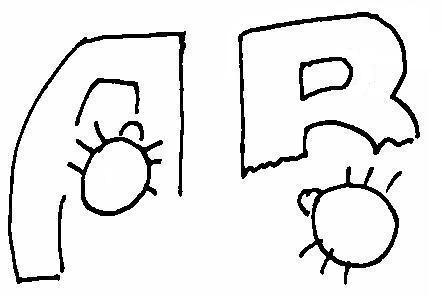|
FOREIGN LANGUAGE AS A NATIVE
SELF-TRAINING
|
Frequently Asked QuestionsAndrei Mihin: I have tried to complete trial training; my problem is that I get slowed down by the pronunciation. I am ready to invest in some sort of pronunciation training guidebook. Can you assist me with this issue? Pronunciation develops through slang-training. Since you have my book, make sure to exercise by doing focused "speed reading". Make sure to take a look at the "icy slope" illustration that follows this text. Specialty pronunciation books can be hindering to the process since they dissect language into sounds and movements. It is similar to an idea of speaking while constantly repeating grammar rules in your head and constructing sentences that way. This process suffocates organic development of the language. The simplest, quickest and cheapest way to find out that there is another way towards correct pronunciation is to complete trial training, only this time with a specific focus.This is a very simple and result-producing way. The result does depend on you training this way, not looking for a new information source or engaging in discussions. By the way, do you keep track of your training statistics? There is a special table in the book that serves this purpose. Statistics play a very important role in slang-sport! You must keep track of your activities. If it is more convenient for you to keep track on a computer, you can download an Excel table. You can find tracking instructions in the cell J.
Anton Hripko wrote a book titled "How to Study a Strange Language?" which contained a curious survey of different language learning systems with their respective approximate language mastering times. The time ranged from 28 to 1200 hours. This figure would remain around 500-600 in respectable schools. What does an online training course under trainer's guidance consist of? What is the schedule? To start, a trainer determines "basic information" about a slang-athlete. - which languages do you know and what is your level in these languages; - your age; - what country do you reside in; - your occupation; - how much time a day and a week can you invest into training; - what issues are you planning to work on using a foreign language; - which languages do you plan on training. Based on this information trainer emails a slang-athlete a description of an appropriate beginning set of trainings. Only instructions, not any actual language materials will be sent to a slang-athlete. All of the materials are to be selected by a slang-athlete. Trainer is there to explain where and how to look for appropriate materials, which ones would be the most suitable for each individual. This is a key principle. (see here for more details). A slang-athlete receives an Excel table which is to be used for everyday training statistics recording. There is also room for other necessary notes, such as personal impressions and questions to the trainer. This table should be emailed to the trainer once a week, usually during the weekend. The trainer will carefully read the table and answer slang-athlete's questions. The trainer will gradually introduce new types of exercises, there are over 20 different kinds, and will also regulate a slang-athlete's training load depending on the actual progress. In this sense, it is very similar to regular sports. Is it possible to be mastering , either simultaneously or intermittently, a few languages? I have read somewhere that there should be an approximately year long pause between studying of languages? This can be answered only based on the experiences of slang-athletes who have been training two, three and five languages at once. None of them had exhibited any concerns or complained of difficulties. On the opposite, they all have stated that it enlivened their educational experience, made it more fun! There is a well-known opinion that one language aids in a mastering of another. It is also widely known that this process becomes much easier after mastering three languages. Try this method out and you will quickly get your own impressions; the simplest and the most reliable method to find out the truth is to test it out for yourself.
Life, as it is presented by my slang-athletes' practice, is always presenting me with new diverse
training ideas, sometimes even with almost finished training exercises. |
|

 There is an ancient tale regarding this. Apparently, people have been asking similar questions
for ages. Here it is:
There is an ancient tale regarding this. Apparently, people have been asking similar questions
for ages. Here it is: Slang-sport is potentially about 10 times more effective than traditional educational technologies.
In practice that amounts to at least twice the result of traditional methods. Therefore the actual
time spent talking can be reduced to 1000 hours. As a result, it can be approximated that you will
need 100 days if you can spend 10 hours a day practicing talking. Consequently, if you can spend 2
hours a day, then the figure changes to 500 days etc.
Slang-sport is potentially about 10 times more effective than traditional educational technologies.
In practice that amounts to at least twice the result of traditional methods. Therefore the actual
time spent talking can be reduced to 1000 hours. As a result, it can be approximated that you will
need 100 days if you can spend 10 hours a day practicing talking. Consequently, if you can spend 2
hours a day, then the figure changes to 500 days etc.